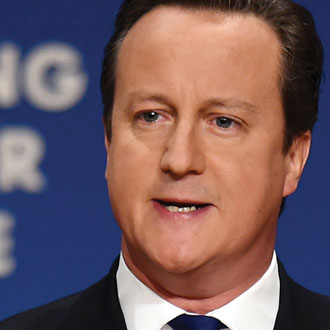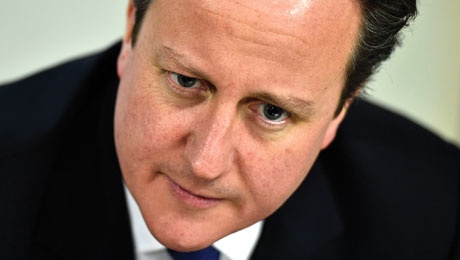Pulse speaks with Prime Minister David Cameron


Isn’t promising seven-day access to GPs ludicrous, when waiting times for appointments are increasing and we don’t have enough GPs to service core hours?
In modern Britain, where people have busy lives balancing work and family commitments, I think it is right that we look at making sure people are able to see their GP at a time that suits them.
The Challenge Fund gives GPs the opportunity to look at how to provide a more flexible and efficient service to their patients, which in turn should help deal with issues like waiting times.
This might mean greater use of technology in terms of video conference software and online consultations, as well as more appointments at convenient times for patients.
The initial feedback from GPs is that this has been an incredibly positive step and both they and patients are seeing the benefits.
Why is the funding for your GP access challenge fund non-recurrent?
The Fund was set up to get GPs thinking about how to adapt service so they can improve their offer to patients, not to simply create a new funding stream.
We are seeing lots of innovative ideas being tested in terms of how patients access services and supporting patients with complex needs.
I want to see GPs themselves deciding what works and what doesn’t, and crucially how best to make these innovations part of their everyday work.
Why are you promising 5,000 new GPs, when the number of filled places for GP training are dropping?
The simple fact is that we need more doctors and more GPs in particular. We expect to train thousands of GPs every year from 2016 onwards, with incentives to encourage medical trainees to move into primary care.
But it’s not just about new GPs. We want to see more flexible working for GPs considering early retirement and to look at encouraging career breakers back into work.
Making sure we have the right number of well-trained, motivated staff is key to the future of care in this country.
Many GPs think this Government has run a concerted campaign to disparage GPs. How do you respond to this?
I think if you look at what we’ve done over the last five years, it is simply not true.
GPs have been at the heart of much of our work on the NHS.
First, we put decision-making, and lot of spending power, into the hands of GPs as part of the health reforms. Second, we have looked to strengthen the role of GPs in how we provide care, with the introduction of the named-GP scheme, so the most vulnerable people get personal care from someone they know. And finally, we put a big emphasis on bringing forward more GPs so as a country we have the capacity to provide the sort of care we all want, with over 1500 more working or training during this Parliament and more to come in the next.
Of course, there are pressures on all parts of the health system and that includes primary care. And there is a need to modernise and find efficiency savings as we move forward. But for as long as I am Prime Minister, I want the Government to work with the profession to crack these problems.
Related articles
Dr Sarah Wollaston: ‘Politicians forget we don’t have a surfeit of GPs’
PM’s seven-day access drive extended to 1,400 more GP practices
Many GPs say the NHS reforms introduced by your Government have fragmented patient care. Do you regret these reforms now?
I don’t accept that.
It was clear when I came into office that we needed to modernise the NHS, to get rid of waste and top-down management, and to give more flexibility to clinicians so they can deliver the best possible outcomes for patients.
We now have an NHS where decision making is in the hands of clinicians and doctors, people who know what’s best for patients. We have taken big strides in terms of efficiency savings, with around £20bn expected to be saved over this Parliament.
And I believe patients are now getting better care than ever before thanks to important schemes such as the integration pioneers, ‘vanguards’, and the Better Care Fund. We now have thousands of extra doctors and nurses treating more patients than ever before; better and safer care – whether in overall survival rates, public health legislation, cancer care, or dementia. I am really proud of the progress we have made on all of these issues.
And there is more to come. Just look at the recent announcement from Greater Manchester in terms of integration between primary and social care. That is the sort of innovation and integration that is possible now, which will only advance patient care.
Why have you not promised to match the £8bn Simon Stevens has asked for to ensure the NHS can survive the next five years?
It is worth remembering that the NHS budget will have gone up by around £12.9 billion over this Parliament and so the money is going in already.
We are working closely with Simon on the Five Year Forward View and our commitment of an additional £2bn in the 2014 Autumn Statement provides the funding Simon has said is needed for the NHS in this coming year.
And I have been very clear that in the next Parliament, we’ll increase spending in real terms every year.
Of course, we need to keep going with the efficiency savings and there will be tough decisions ahead.
But I believe Simon’s plan is achievable.
We should never forget that you cannot have a strong NHS without a strong economy, and we must continue to live within our means and manage down the deficit. That will remain at the very heart of my plan for the country.









